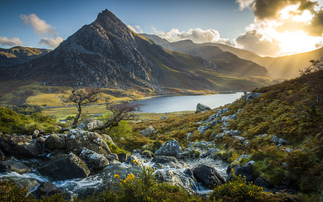James Murray's speech to the BusinessGreen Leaders Awards reflects on another year of success for the green economy
Ladies and Gentlemen, welcome to the fifth annual BusinessGreen Leaders Awards. Tonight we are here for two reasons: to celebrate the success of the green economy; and to provide a living example of...
To continue reading this article...
Join BusinessGreen
In just a few clicks you can start your free BusinessGreen Lite membership for 12 months, providing you access to:
- Three complimentary articles per month covering the latest real-time news, analysis, and opinion from Europe’s leading source of information on the Green economy and business
- Receive important and breaking news stories via our daily news alert
- Our weekly newsletter with the best of the week’s green business news and analysis







